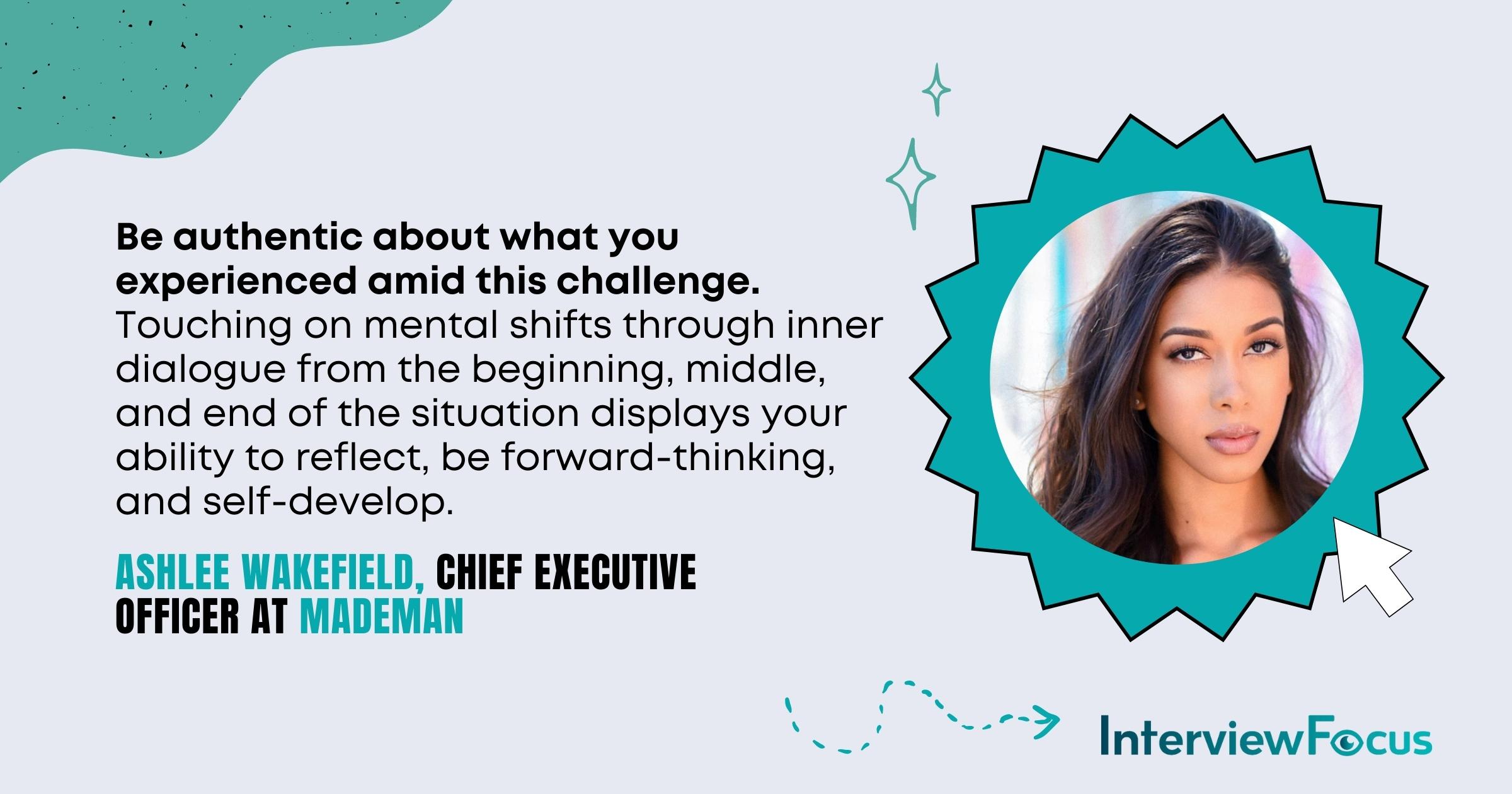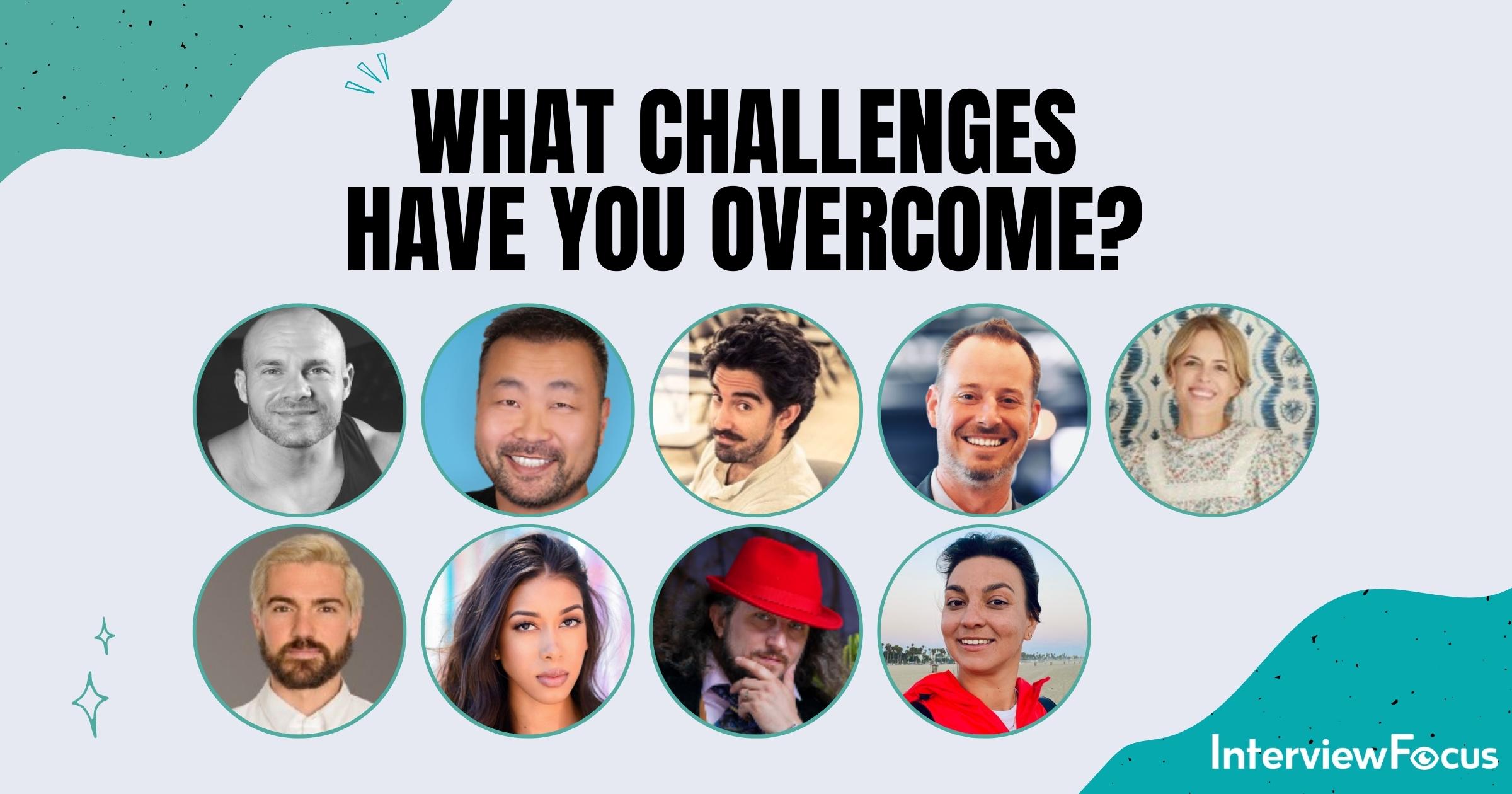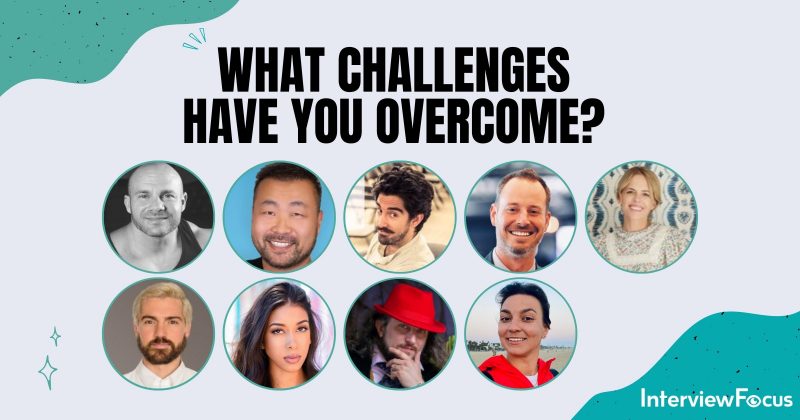How should you answer the interview question “what challenges have you overcome?”
To help you best respond to the interview question “what challenges have you overcome?,” we asked hiring managers and business leaders this question for their best insights. From using a professional and personal example to telling a story that focuses on a lesson you learned, there are several ways to bring your positive and problem-solving attributes to the fore in answering the interview question “what challenges have you overcome?”.
Here are 11 answers to the interview question “what challenges have you overcome?”:
- Use a Professional and Personal Example
- Provide Examples Where You Multitasked Effectively
- Speak to How You Stayed Calm Under Pressure
- Keep a Positive Tone as You Show Invaluable Lessons Learned From Your Challenges
- Showcase Your Patience With Examples of How You Dealt With Difficult Customers
- Tell a Personal Story to Keep Your Answer to The Point
- Focus On Challenges that Are Unique to You
- Be Authentic With One Example of How You Overcame a Challenge
- Discuss a Specific Challenge Including Actions Taken and The Results
- Relate The Challenge to The Job You’re Applying for
- Tell a Story to Focus On a Lesson That You Learned
Use a Professional and Personal Example
This is a question to show you can overcome challenges. Most will go to a personal struggle they had to persevere through, but it is important to show the employer you can overcome challenges at work in the same manner. This is a pretty common interview question so be sure to prep these two examples to discuss when this interview question arises. That way you have covered this question from all angles and will alleviate any doubt that you can handle challenges in a professional context.
Mark Smith, University of Advancing Technology
Provide Examples Where You Multitasked Effectively
Provide examples of times when you had many deadlines to achieve in a short time frame (as well as how you pulled it off). When answering this question, you always want to present yourself in a positive light. Focusing on how you developed multitasking skills lets a potential employer know that you have the mental capacity to juggle multiple projects simultaneously, which is a trait many companies are looking for.
Jae Pak, Jae Pak MD Medical
Speak to How You Stayed Calm Under Pressure
The best way to answer any question your potential employer poses about overcoming challenges is to speak to your ability to stay calm under pressure. This answer shows you can take control of any situation. Employers need to know how a potential employee can handle a stressful situation. A challenge you overcame is the perfect place to emphasize this trait.
Phillip Akhzar, Arka
Keep a Positive Tone as You Show Invaluable Lessons Learned From Your Challenges
Make sure to maintain a positive tone when answering this question. Of course, we have all experienced difficult periods at work, but to show that you are a resilient person and that you would be a pleasant person to work with, you should show that you learned invaluable lessons through overcoming your challenges. If you come across as too much of a complainer or a victim when describing the challenges you have endured, this could be a turnoff to the interviewer.
Drew Sherman, Carvaygo
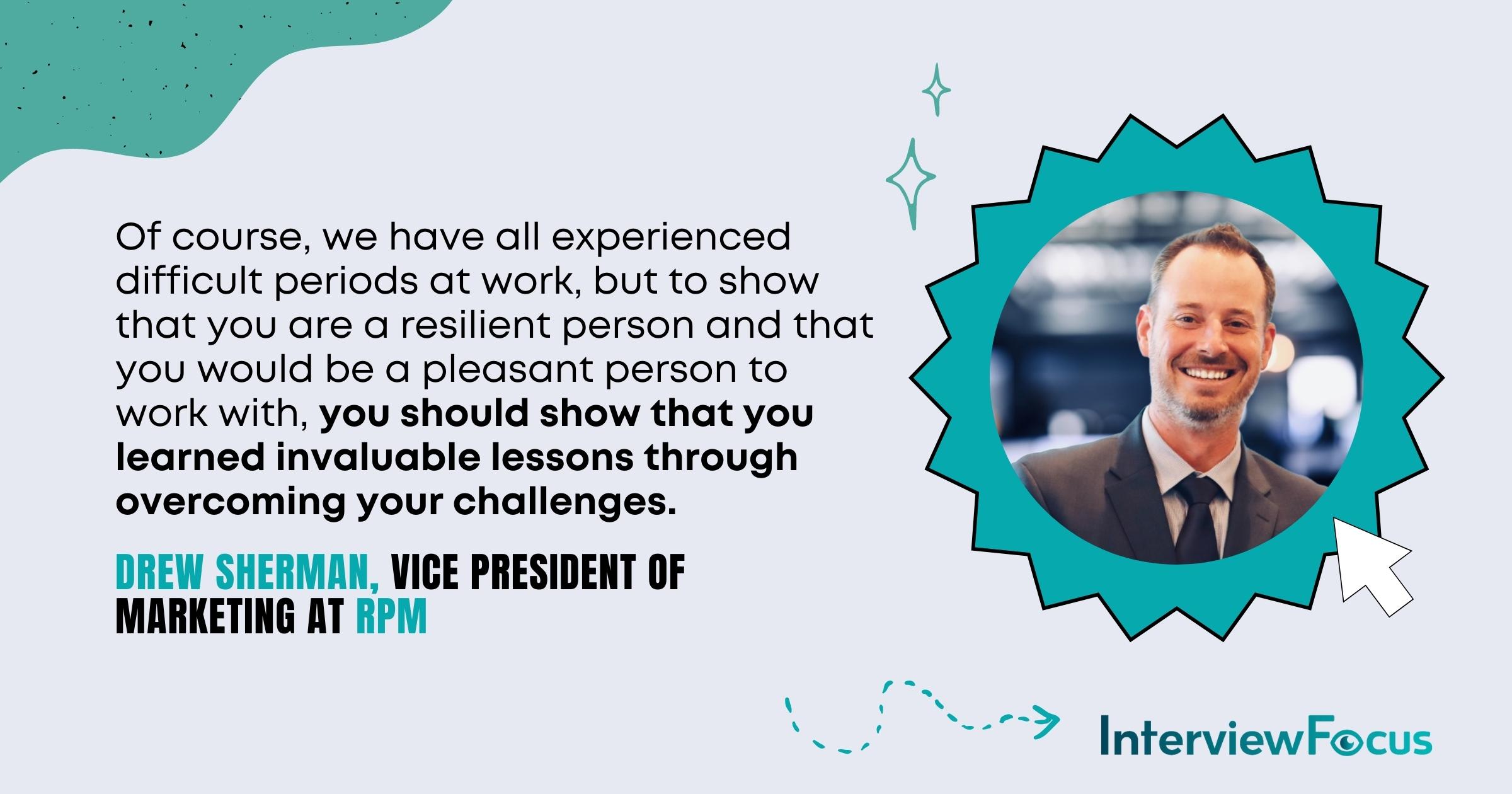
Showcase Your Patience With Examples of How You Dealt With Difficult Customers
“I’ve overcome working with difficult clients with my patience intact.” Patience is a coveted virtue. Those who lack said trait often lack self-control in dealing with others as well. Therefore, this answer can make you an attractive candidate but might also spark interest in specifics. Prepare prior to the interview by recalling a time you successfully dealt with tough customers or ornery clients. You should be able to think of at least one! Let your patience shine as nobody wants to work with jerks!
Erin Banta, Pepper
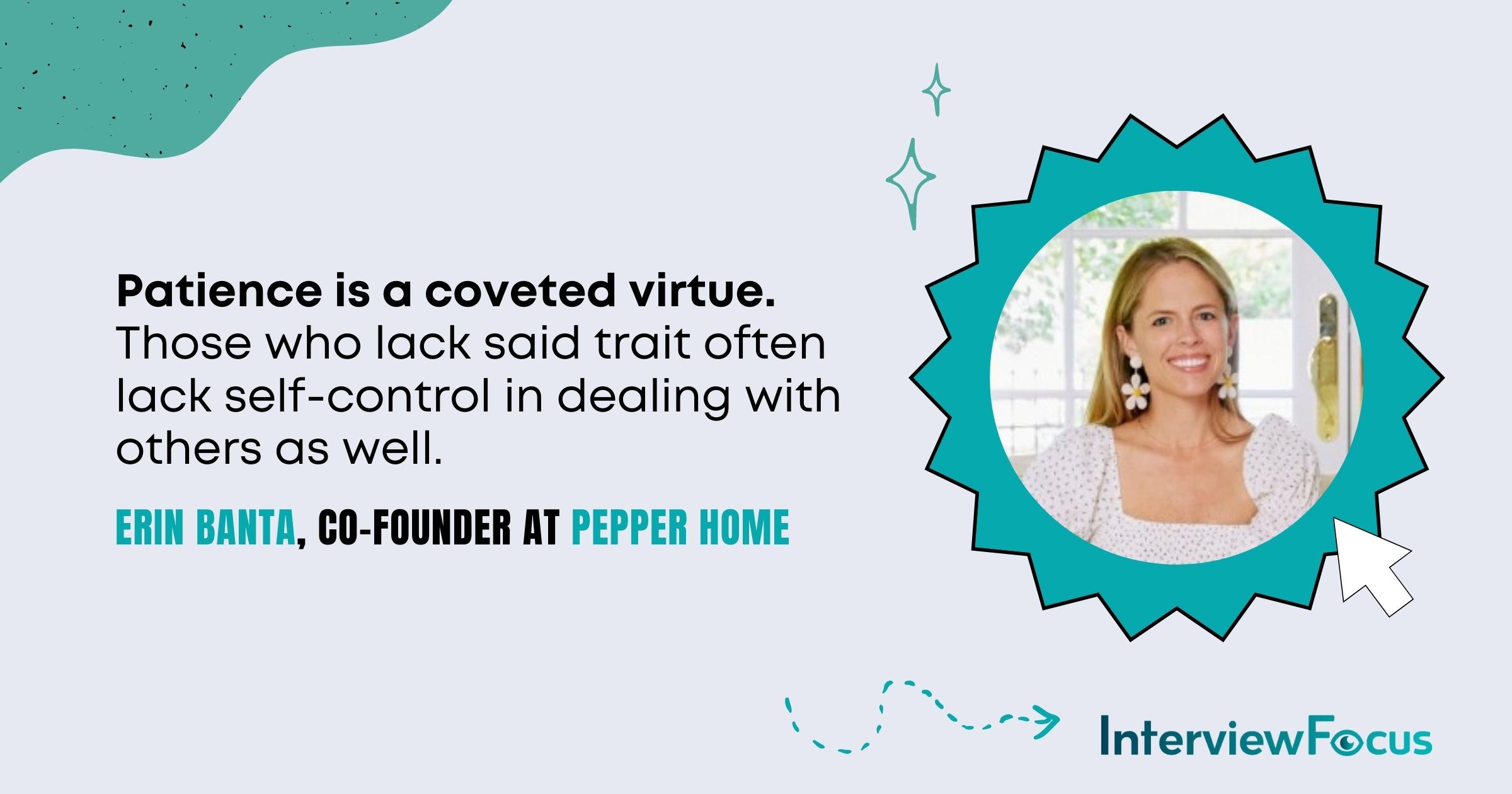
Tell a Personal Story to Keep Your Answer to The Point
To keep your interview answer clear and to the point when asked about a challenge you have overcome, I recommend using the CAR format (Cause, Action, Result) to respond through a personal story. First, set the context of your response, then demonstrate a specific example of the challenge and how you were able to overcome it. Within your answer, be sure to highlight skills and abilities that you demonstrated which also align with what the interviewer is looking for. The final piece of your response should be what you learned from that experience, and how you continue to apply these new insights in your work.
Marilyn Zubak, Snif
Focus On Challenges that Are Unique to You
When it comes to questions regarding difficulties you have faced in life, it is best to focus on challenges that are unique to you. You can think about this question as a way for you to separate yourself from the other applicants. By thinking of something outside the box, you are able to show the interviewer what makes you different. And remember: don’t hold back. No two people are alike, so it is important to share your challenges, even if you think they might be insignificant to others.
Gerald Lombardo, The Word Counter
Be Authentic With One Example of How You Overcame a Challenge
The best answer would depend on each person and their life. You should answer it with authenticity. Don’t overwhelm the interviewer with a lot of problems or challenges. Just pick one and tell how you overcame it. Be positive in your story. You aren’t trying to evoke pity but are trying to convey that you have mental endurance and a will to overcome any obstacle.
Steve Mascarin, Taunton Village Dental
Discuss a Specific Challenge Including Actions Taken and The Results
When interviewers ask this question, they want to see how you have handled difficult situations in the past. They want to know if you can overcome obstacles and persevere through tough times. To answer this question effectively, you should discuss a specific challenge you have faced and conquered. Describe the situation, what action you took, and what the results were. Be sure to focus on your positive qualities, such as determination, resilience, and perseverance.
For example, you might say: “I once had to take on a project alone when the team I was working on was disbanded. It was a lot of work, but I didn’t give up. Instead, I organized my time and worked diligently until the project was completed successfully.”
By sharing a story of a time when you overcame adversity, you can show the interviewer that you can handle challenges and come out victorious. This will give them confidence in your abilities and increase your chances of being hired for the job.
Lukasz Zelezny, SEO Consultant London
Relate The Challenge to The Job You’re Applying for
The best way to answer is to think of challenges that you were able to overcome and the trait that best relates to that outcome. Be sure to build on a trait that would be relevant to the position you’re applying for. For example, in a customer service position, patience is an important trait to have to provide excellent customer service. Briefly explain the situation and how, in this case being patient, was achieved and how this trait successfully impacted the experience for the customer.
Lyudmyla Dobrynina, Optimeal
Use a Story to Focus On a Lesson That You Learned
Focus on a lesson you learned, tell the story, and be authentic; this keeps the interviewer engaged and builds trust. When this question arises, you may want to list a few general challenges, then take the interviewer through a short yet meaningful slice of one challenge you have faced. Be authentic about what you experienced amid this challenge. Touching on mental shifts through inner dialogue from the beginning, middle, and end of the situation displays your ability to reflect, be forward-thinking, and self-develop.
Ashlee Wakefield, MadeMan
